Best phaser pedals: Harness the swirling sound of the phaser and take your riffs to a whole new sonic level
Join the legions of famous players who enlisted the help of a phaser to create monstrous tones that have stood the test of time
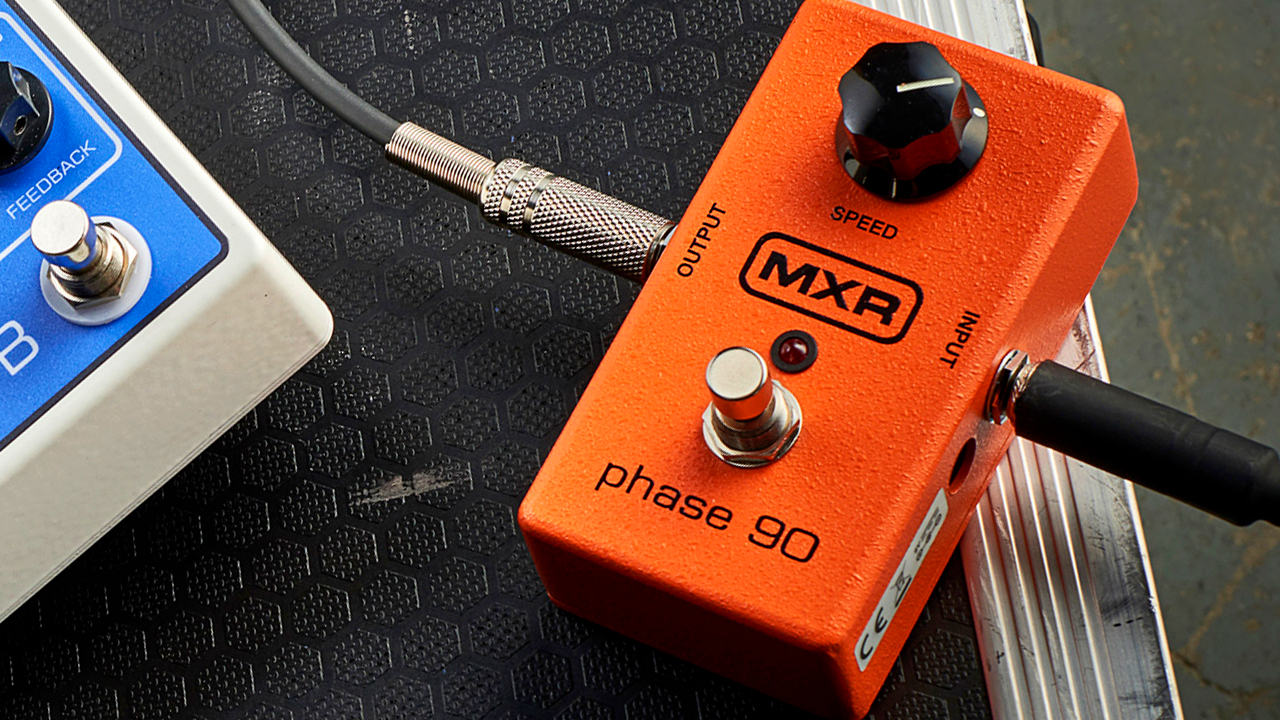
Phaser - rock 'n' roll wouldn't be the same without this iconic swirling effect. Beloved by guitarists from all walks of life, this stompbox essential has never really gone out of style since its inception in the late '60s. The chaotic swooshing of the best phaser pedals can be heard on classic tracks such as Who's That Lady by the Isley Brothers and Little Wing by Jimi Hendrix, as well as Radiohead's Paranoid Android and the legendary intro of Rage Against the Machine's rebellious classic, Killing In The Name.
The lineage of the phaser can be traced back to 1967 with the Univibe, and continues on through to the Maestro PS-1 Phase Shifter, which admittedly looks more like a panel from the original TARDIS than a guitar pedal. From here, the love for the effect takes off, with many companies producing their own take on this simple circuit. From the iconic MXR Phase 90 to the much-praised Electro-Harmonix Bad Stone, all the way to the contemporary digital pedals of today, this effect has stood the test of time and certainly won't be disappearing any time soon.
Phasers can get a bit of a bad rap for vaporising your tone. That's why in this guide, we've chosen pedals that bring energy and excitement without sucking the life out of your guitar sound. We have classic units from MXR, must-try pedals from Electro-Harmonix and Boss, modern designs from Earthquaker Devices and Walrus Audio, and even a pint-sized stomp from Ibanez.
So, set your phasers to stun as we count down our top choices for anyone looking to add this legendary filter effect to their 'board.
Best phaser pedals: Our top picks
Our top pick when it comes to the best phaser pedal may be considered an obvious choice, but it has to be the MXR Phase 90. There simply isn't another phaser pedal as famous or beloved as this orange box of tone - and come on, if it's good enough for Van Halen, Tom Morello, David Gilmour, Jimmy Page and Zakk Wylde, it's good enough for us.
Next, we have to give a shout-out to the JHS 3 Series Phaser. This plain-looking stomp may not look like much, but hidden away inside is a powerhouse of a phaser that offers superb value for money. Drawing inspiration from four legendary circuits, this pedal most definitely outperforms others in this price category.
Best phaser pedals: Product guide & reviews
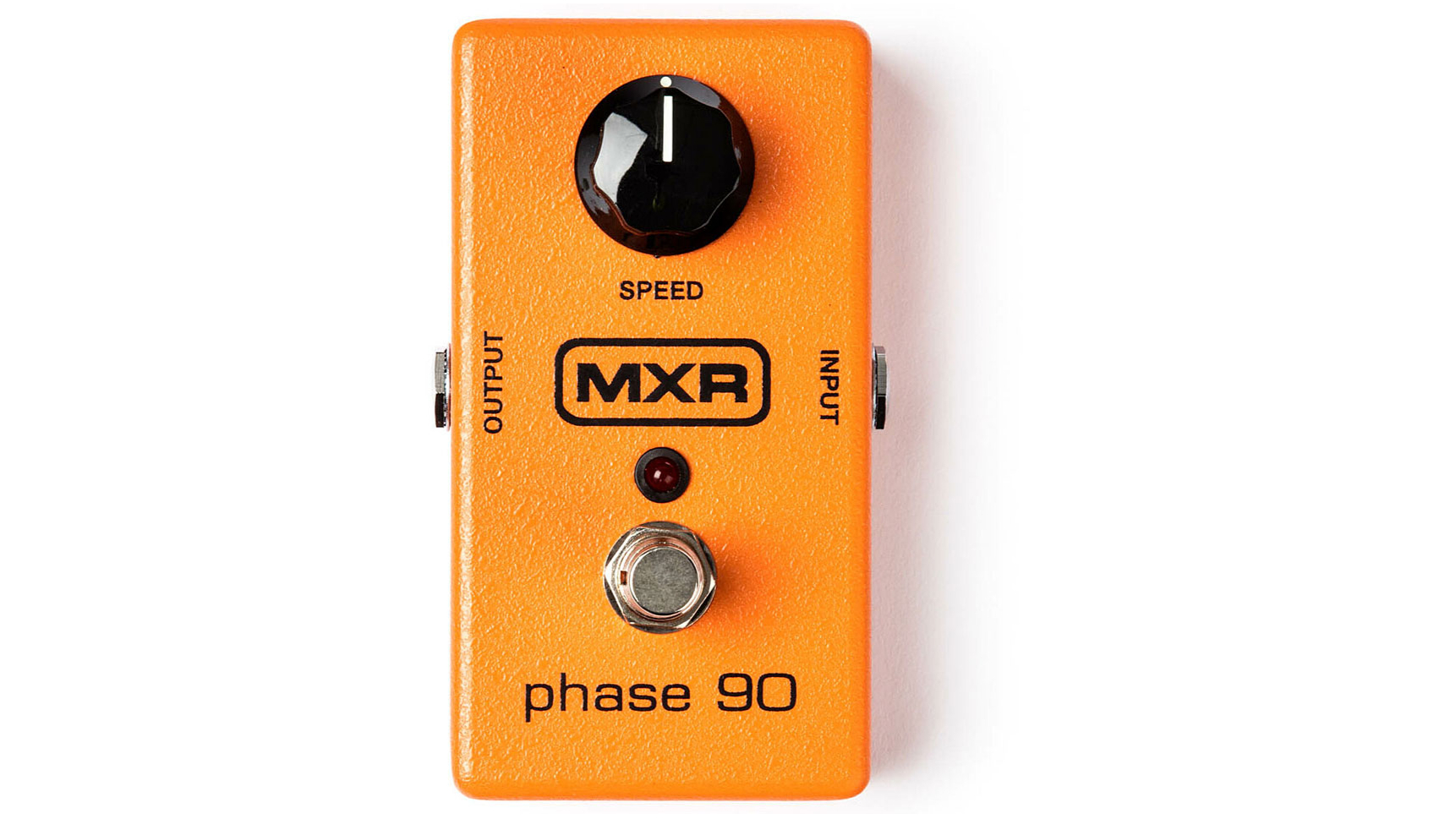
1. MXR Phase 90
Our expert review:
Specifications
Reasons to buy
Reasons to avoid
The Phase 90 may not be the original phaser, but it can certainly lay claim to the most well-known phase shifter in existence. As a beloved companion of Mr Edward Lodewijk Van Halen, this MXR pedal has appeared on some of the most explosive solos of all time. As such, many see the Phase 90 as the quintessential phase sound, and therefore it had to take our number one spot.
Much of the appeal of the MXR Phase 90 - apart from its stellar sound - is its simplicity. This slimline stomp houses a solitary dial for controlling the rate of the phaser, with absolutely no control over the volume or tone. That said, this tangerine box is plenty versatile enough for most players.
Simply keep the rate low for a subtle hint of movement, and crank the rate all the way up to get those out-of-control space-age sounds.
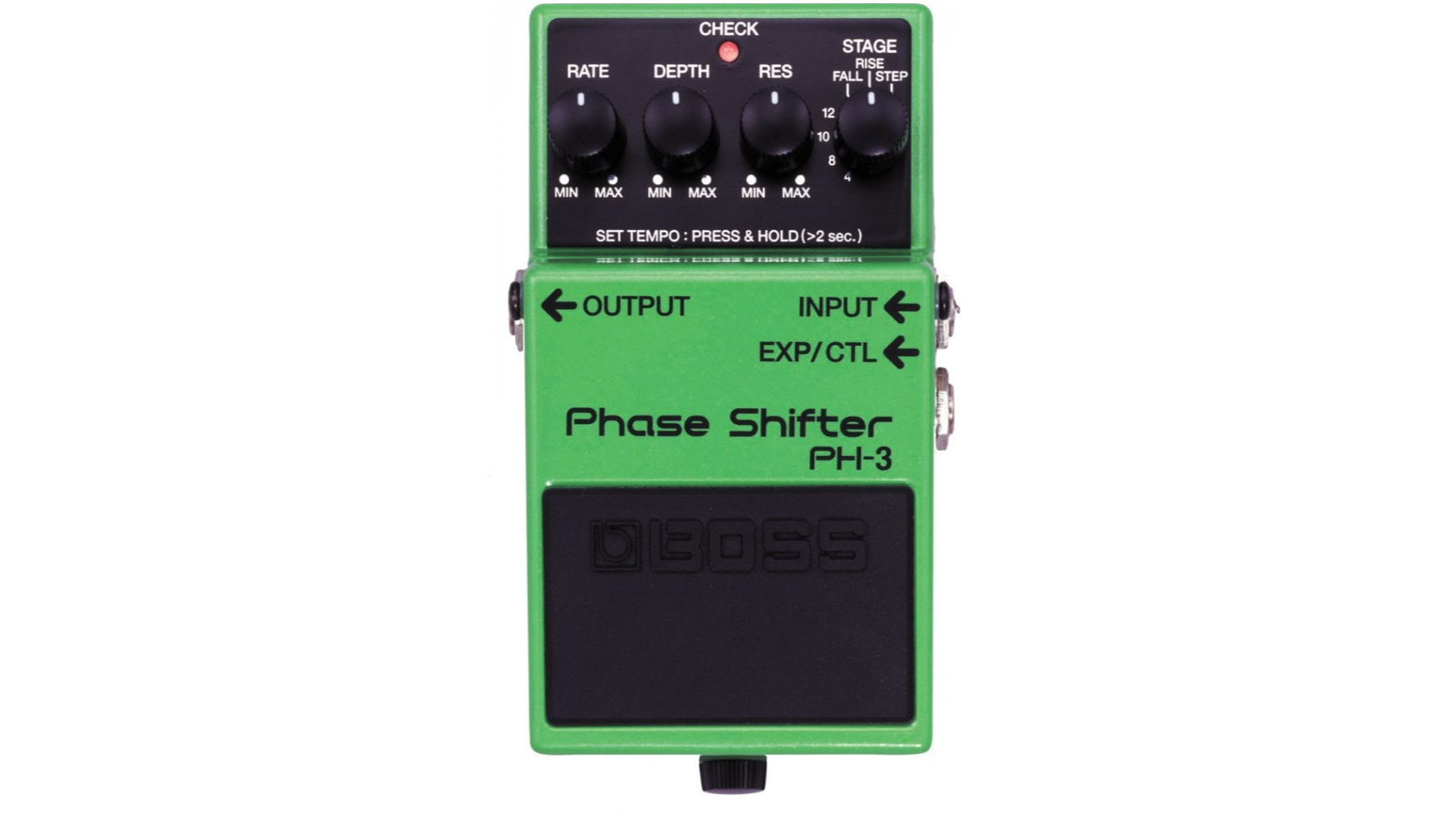
2. Boss PH-3 Phase Shifter
Our expert review:
Specifications
Reasons to buy
Reasons to avoid
You'd be forgiven for not immediately thinking of Boss when searching for the best phaser pedal, but in actuality, they make one of the most versatile - and affordable - options out there.
This digital phaser features everything you'd ever need to create myriad of phasing sounds. With independent control over the speed, depth and resonance, you can easily dial in the exact tone you are looking for - better yet, you can also switch between 4, 8, 10 and 12-stage phasing.
Both the Rise and Fall modes allow the user to access "unidirectional phasing". This unconventional effect builds on the simple sweeping sound of vintage-style phasers and pushes it to its limits. In addition, you also have access to a tap tempo mode and the ability to control the unit with an expression pedal - come on, what more do you need?
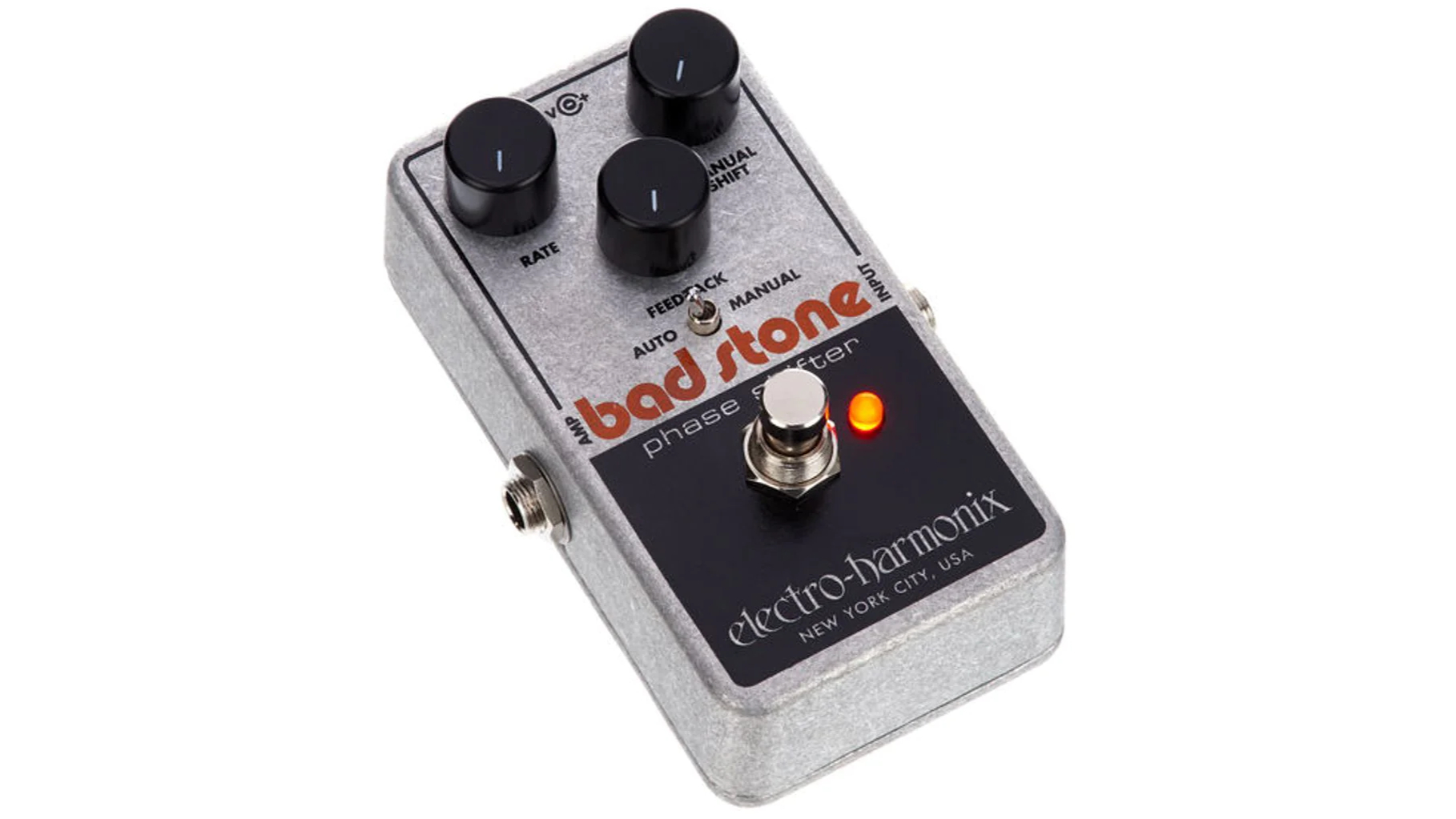
3. Electro-Harmonix Bad Stone
Our expert review:
Specifications
Reasons to buy
Reasons to avoid
It's fair to say this six-stage phaser is legendary. Often sitting in the shadow of its four-stage brother, the Small Stone, the Electro-Harmonix Bad Stone delivers the classic mid-70s sound at an unbeatable price.
In true EHX fashion, the Bad Stone features some mislabeled dials that actually control some pretty common parameters. Let's start with the rate knob - the one control that does what it says on the tin. This dial simply controls the speed of the phaser. Feedback - not to be confused with similarly named controls on a delay pedal - determines the depth of the phase effect, while the onboard toggle switch toggles between the Auto and Manual modes.
Manual Shift mode lets users freeze the phase cycle, resulting in an almost cocked wah sound, and the frequency can be dialled in using the Manual Shift knob.
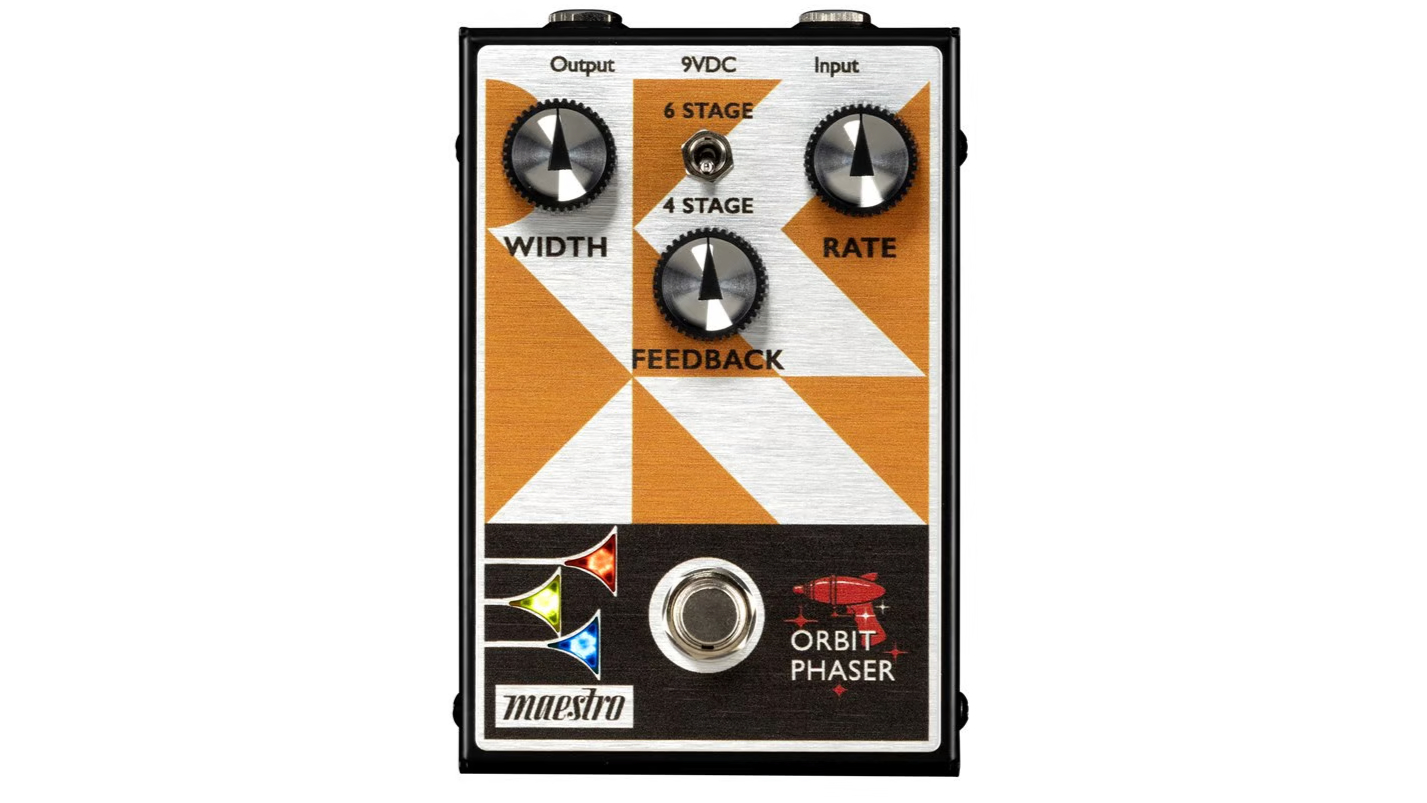
4. Maestro Orbit Phaser
Our expert review:
Specifications
Reasons to buy
Reasons to avoid
While Maestro can't claim to be the first to reproduce a guitar pedal that modulates the signal in and out of phase, they were certainly the first to use the moniker "phase-shifter" and well, the rest is history.
After a brief time away, guitar giants Gibson have revived their legacy pedal brand, with Maestro coming back with a bang! Their latest pedal offering, the Orbit Phaser, is a direct offspring of the PS-1, albeit in a more user-friendly format with some modern features - and we must say, we love it.
This sleek new pedal delivers the warm, smooth tone the original is famed for - while also giving users the choice of 4 or 6-stage phasing. As pedal nerds, we are glad to see Maestro back doing what they do best, and we can't wait to see what the future holds for this retro brand.
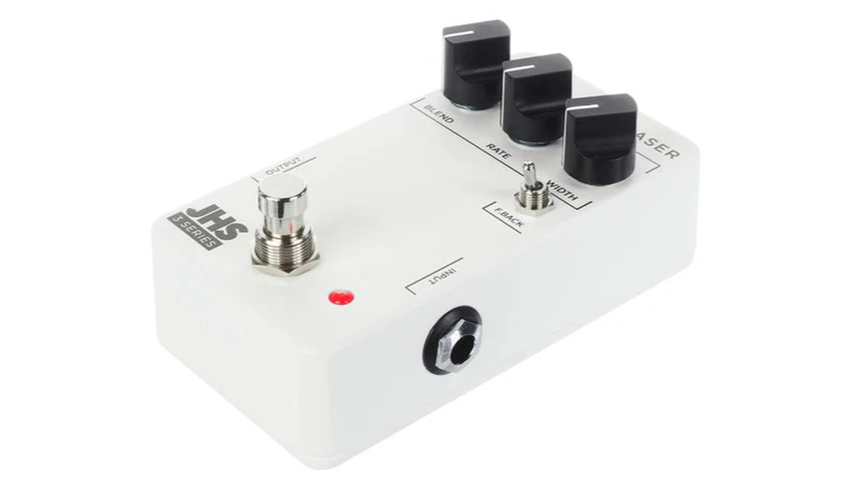
5. JHS 3 Series Phaser
Our expert review:
Specifications
Reasons to buy
Reasons to avoid
When JHS launched the 3 Series in late 2020, they had a very noble mission statement - to make simple-to-use, affordable pedals that still carry the stellar build quality the Kansas City pedal company was known for. As time has gone on, the lineup has expanded, with more effects joining the ranks, such as overdrive, delay, hall reverb and flanger, among the pedals on offer.
Of course, the pedal we are interested in today is the JHS 3 Series Phaser. Strangely, this is the first phaser ever to be introduced into the JHS family, and boy, is it a good one to kick off with. Drawing inspiration from the Top Gear Phaser, the Guyatone PS-007, EHX Small Stone, and MXR Phase 100, this unassuming white pedal might just be the ultimate vintage phaser.
Bold claims, we know, but with a tone this good and a price tag that certainly won't break the bank, what more could you ask for?
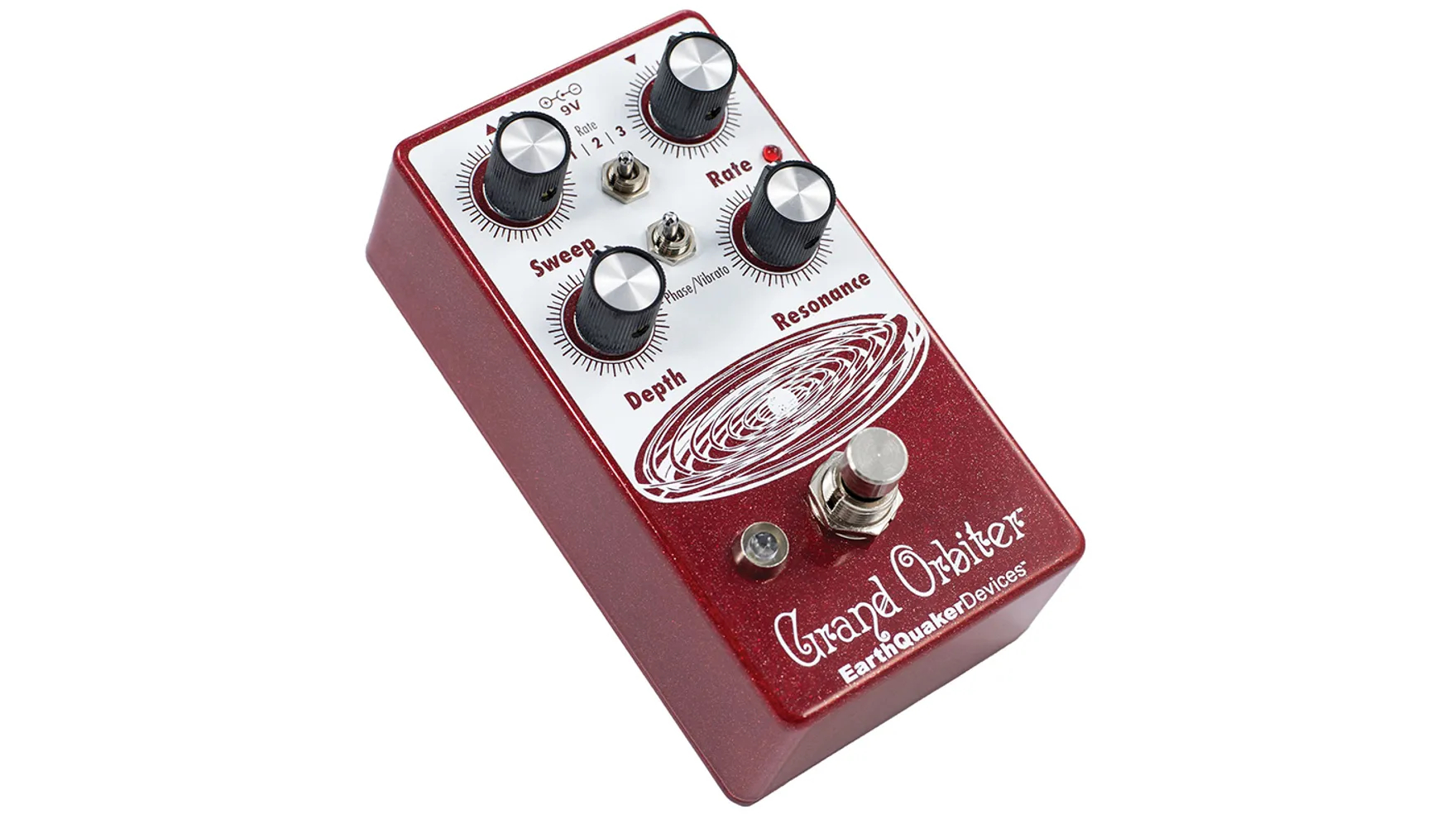
6. Earthquaker Devices Grand Orbiter
Our expert review:
Specifications
Reasons to buy
Reasons to avoid
Earthquaker Devices are known for their out-of-this-world pedals, and the Grand Orbiter is no different. This is a thick and meaty-sounding phaser that can do anything from a slow, mellow sweep to sci-fi inspired chaos.
The Rate toggle located in the centre of the pedal is used to select the range of speed control, with positions 1 and 3 being slow and fast, respectively. Where it gets interesting is Rate 2, which is referred to as "LFO kill mode". This allows users to use the Grand Orbiter as a fixed resonant filter.
In case that wasn't enough, Earthquaker Devices also gives guitarists the option to turn the Grand Orbiter into a vibrato pedal at the flick of a switch. In this mode, the dry signal is removed and the Depth knob becomes a volume control for the effect.
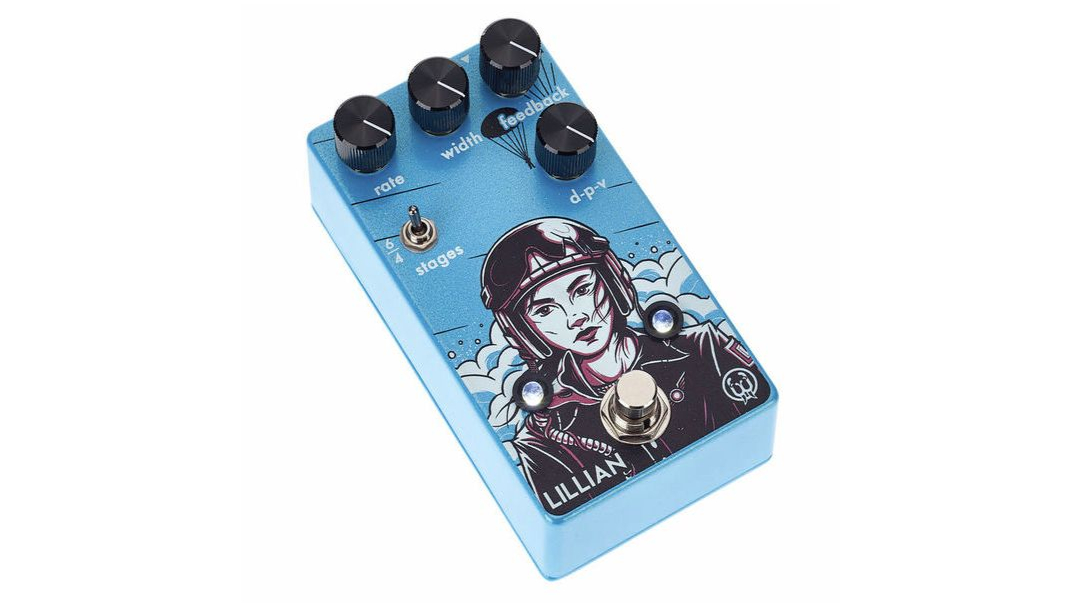
7. Walrus Audio Lillian Analog Phaser
Our expert review:
Specifications
Reasons to buy
Reasons to avoid
The Walrus Audio catalogue is choc-a-block with excellent stompboxes that look just as good as they sound, and one of our favourites has to be the Lillian Analog Phaser. This beautiful-looking pedal doesn't do anything too crazy with the tried and tested 4/6-stage phasing formula, but what it does do is deliver a crisp and clean phasing sound that's both dynamic and expressive.
At the heart of the pedal is the clever D-P-V control, which adds an extra level of flexibility to an already brilliant unit. This control - borrowed from their famed Julia chorus - allows you to seamlessly blend between the dry, phase-shifted and vibrato sounds.
With the dial all the way to the left, you'll only hear the unaffected signal and as you move the dial to the right, you'll slowly blend in the phaser. Once you pass the 12 o'clock position, you'll start to stray into vibrato territory.
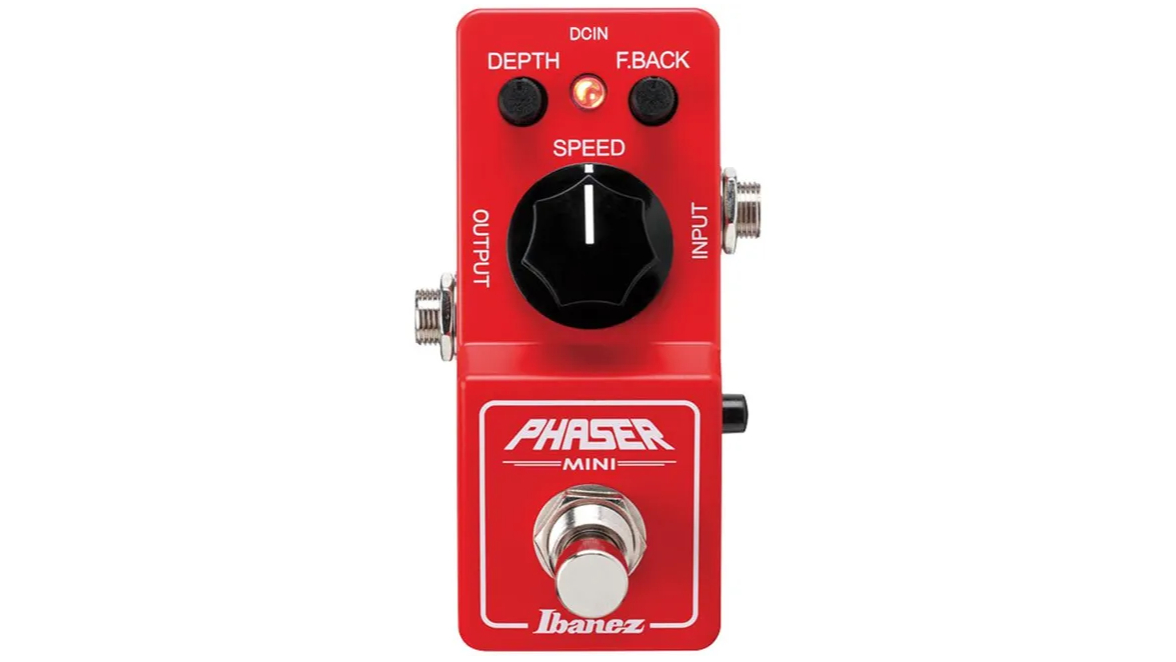
8. Ibanez PH MINI Phaser
Our expert review:
Specifications
Reasons to buy
Reasons to avoid
Despite offering guitar players a plethora of tone-shaping options, many of the pedals presented by Ibanez are stuck in the shadow of the sonic behemoth that is the Tube Screamer. Now, don't get us wrong, at MusicRadar, we are massive fans of the mean green tone machine, but we do wish players would explore the range past this famous overdrive pedal.
Case in point, the Japanese pedal manufacturer produces one of the best phaser pedals around, and unfortunately, it's often overlooked. This tiny crimson pedal delivers a classic, rich-sounding tone that definitely harkens back to the vintage phasers of the '70s.
Featuring a simplified control layout of Speed, Depth and Feedback, this pedal takes seconds to dial in, and better yet, the PH MINI also has the ability to switch from a four-stage phaser - for all your classic rock needs - or a more intense six-stage phaser, for when you want to get wild.
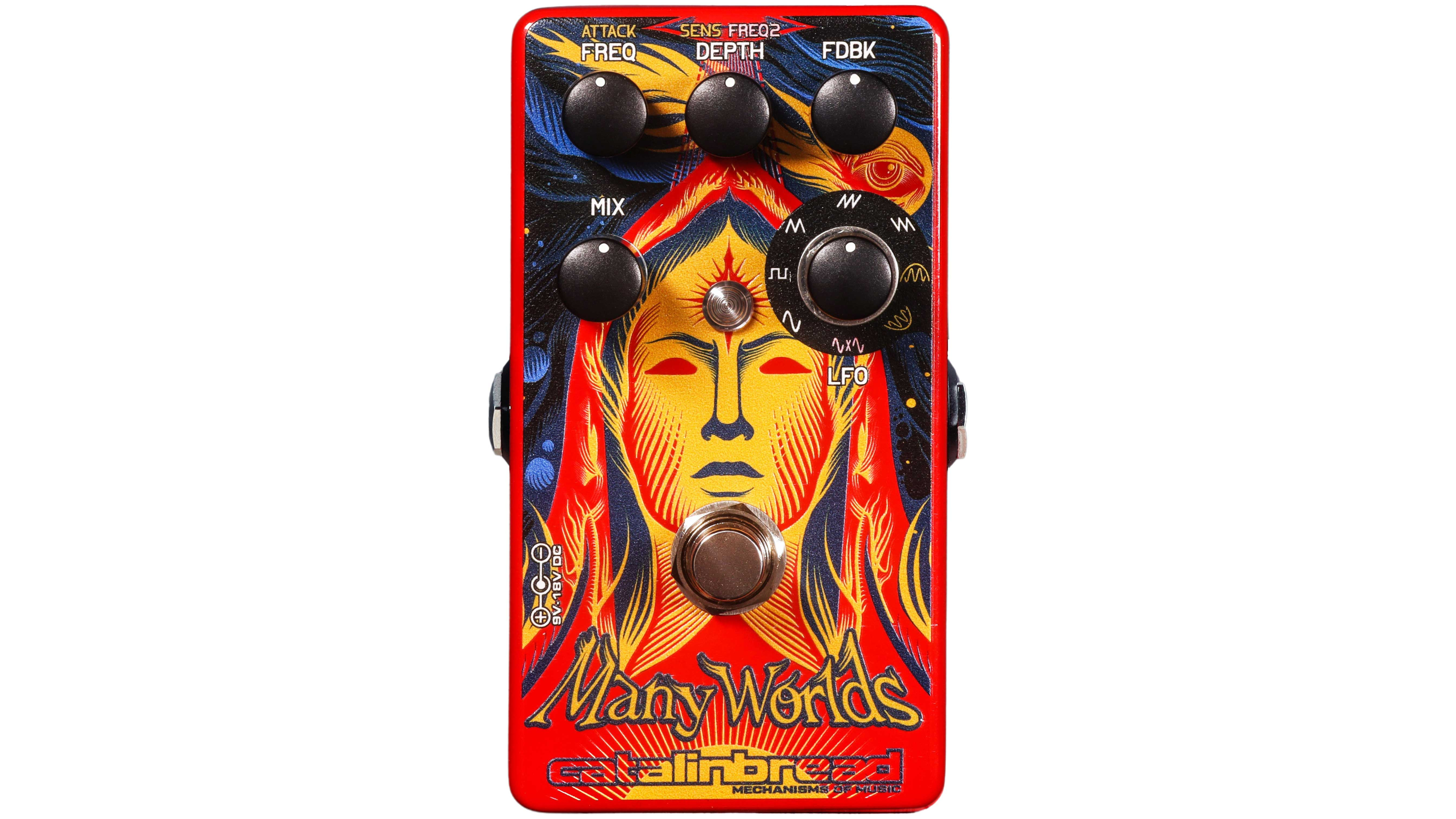
9. Catalinbread Many Worlds 8 Stage Phaser Pedal
Our expert review:
Specifications
Reasons to buy
Reasons to avoid
To call this Catalinbread pedal "just a phaser" really does this otherworldly stomp a disservice. The Many Worlds is actually one of the greatest modulation pedals on the market right now.
As the name suggests, there are eight phasing types locked away inside, with some modes being fairly traditional and others sounding like they've come, well, from another world. The onboard LFO dial gives you access to sine, square, triangle, sawtooth and reverse sawtooth, with things taking a crazy turn when you introduce the two envelope-following sweeps - for us, the battle mode is where a lot of the fun is had.
Luckily, the Many Worlds has a mix control. This dial comes in handy to tame the chaos - albeit slightly - allowing you to decide exactly how much of the swirling phase sound you need. Keep the mix low for a subtle injection of phase and crank the mix all the way up to open a portal to another dimension.
Best phaser pedals: Buying advice
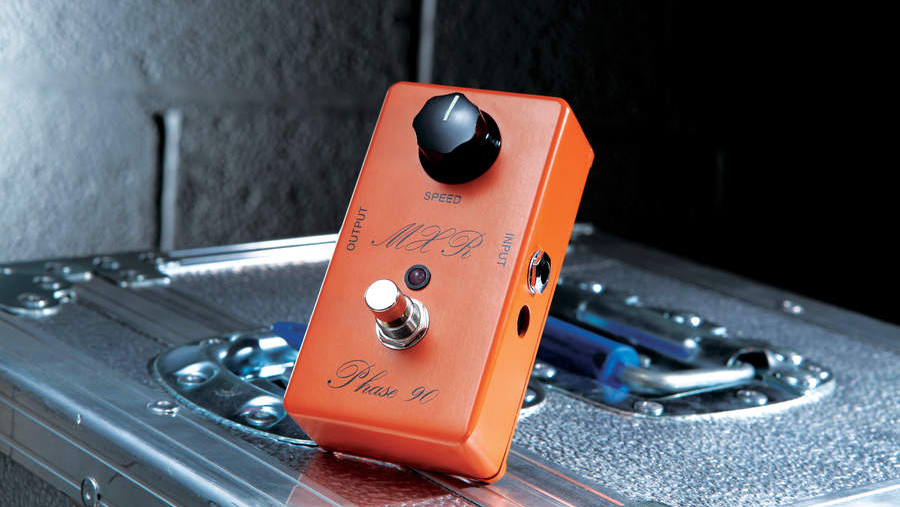
What is a phaser pedal?
Bursting on to the guitar scene in the late '60s, the phaser pedal has been a mainstay at the feet of guitarists ever since. This relatively simple stompbox creates a sweeping, modulating sound that creates a sense of energy and movement that can turn a somewhat pedestrian part into a dynamic and exciting lead line that becomes the hook of the song.
Very basically, a phaser works by splitting the input signal into two identical parts and then delaying one of the copies, creating a phase shift. The relationship between these two signals is continuously changing over time, and this is what results in the famous swooshing sound.
The phaser effect can be controlled in several ways. Most phaser pedals have a "rate" knob that adjusts the speed of the phase sweep and a "depth" knob that determines the amount of phase shift applied to the signal. Some phaser pedals also have additional controls for adjusting the tone and mix of the effect.
What should I look for in a phaser pedal?
When it comes to finding the best phaser pedal for your needs, you must first decide if you're looking for a vintage-inspired sound or a radical space-age unit.
If you are seeking to imitate the guitar heroes of the '70s, then a basic 4-stage phaser will do the job. The MXR 90 or Electro-Harmonix Bad Stone are brilliant options.
On the other hand, if you are on the hunt for more variation in your tone, then a six or even eight-stage phaser may be a better choice. The Boss PH-3, Earthquaker Devices Grand Orbiter and Catalinbread Many Worlds are amazing options for those wanting to experiment with more unearthly sounds.
Where should the phaser go in my pedal chain?
Like we've said before, there are no hard and fast rules when it comes to pedal order, but that is doubly true when it comes to phasers. Where a phaser goes in a pedal chain will drastically change how it sounds, so get experimenting.
Most players opt to place the phaser after their overdrive and distortion pedals, but for a more extreme effect, we recommend trying it before your drives. It's also worth having a go of placing the phaser after your delays and reverbs to create sci-fi-inspired soundscapes.
Related buyer's guides
MusicRadar's got your back
- Best fuzz pedals: some extra dirt for your guitar tone
- Explore the 10 best reverb pedals available right now
- The best delay pedals from Boss, Strymon and more
- On a tight budget? Here are the best cheap guitar pedals
- Find your perfect tone with the best multi-effects pedals
- Get pedal loopy with the best looper pedals
Want all the hottest music and gear news, reviews, deals, features and more, direct to your inbox? Sign up here.
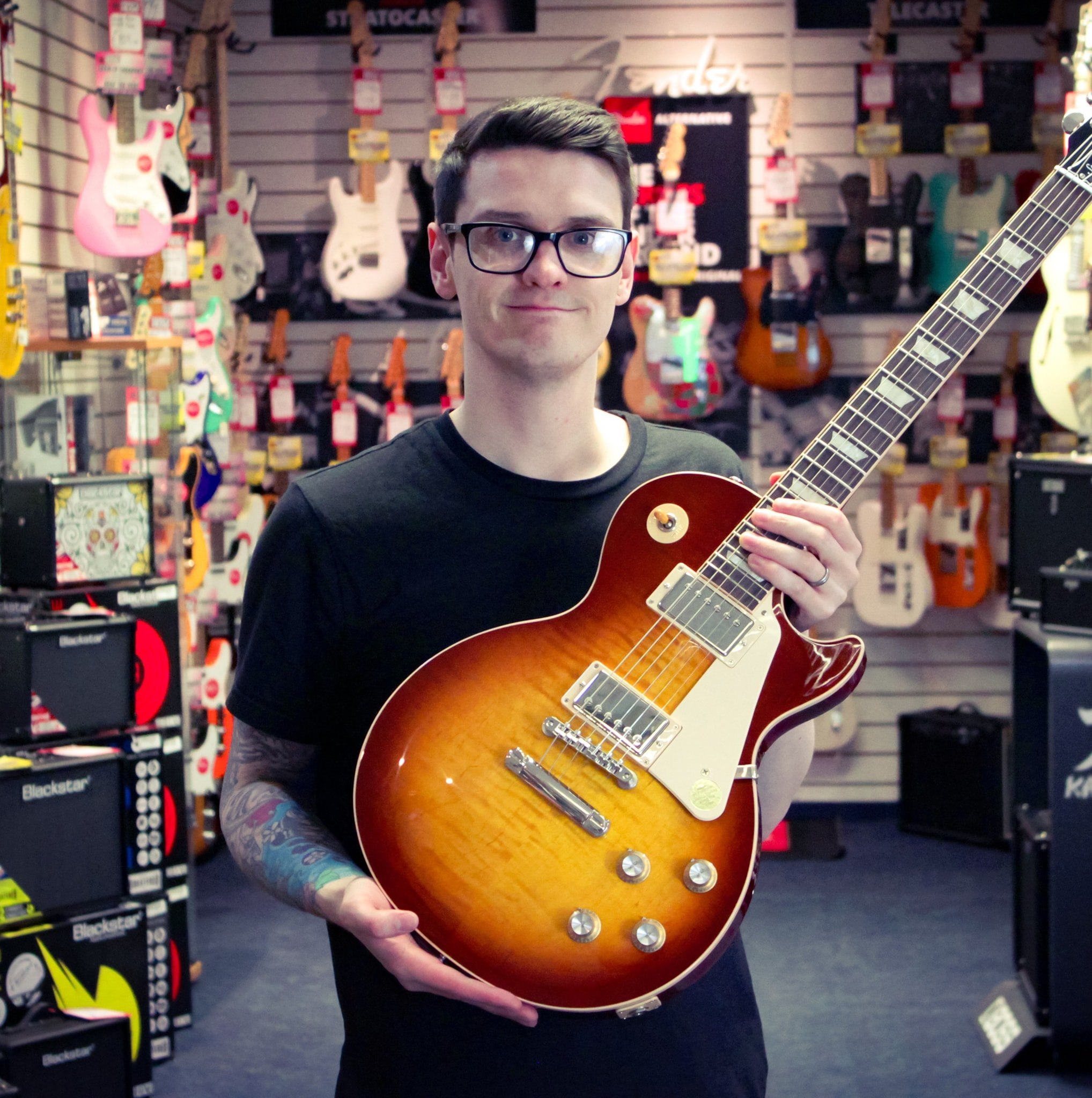
I'm a Senior Deals Writer at MusicRadar, and I'm responsible for writing and maintaining buyer's guides on the site. As part of my role, I also scour the internet for the best deals I can find on gear and get hands-on with the products for reviews. My gear reviews have been published in prominent publications, including Total Guitar, Guitarist, and Future Music, as well as Guitar World.com. I've also had the privilege of interviewing everyone from Slash to Yungblud, as well as members of Sum 41, Foo Fighters, The Offspring, and many more.
In a previous life, I worked in music retail, selling everything from digital pianos to electric guitars. I'm also a fully qualified sound engineer who holds a first-class Bachelor's degree in Creative Sound Production from the University of Abertay.